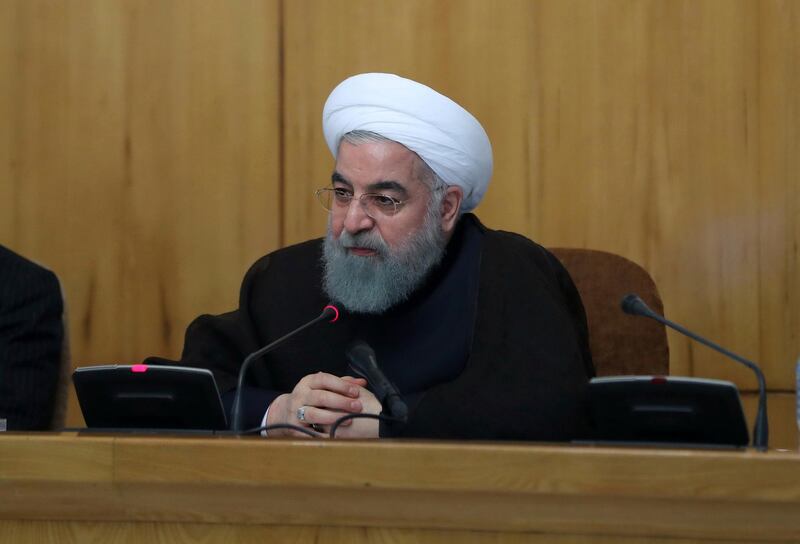Both Iran and Russia vowed to retaliate against the US for the “blatantly hostile” decision to impose new sanctions.
The European Union also fired off an unexpected warning on Wednesday, saying the move would prompt “swift retaliation” which could punish energy firms and divide the West.
Iran’s president Hassan Rouhani told his cabinet the government would “take any other action needed to preserve and strengthen the interest of the nation.”
Russia said the imposition of new sanctions made it all but impossible for the Trump administration to achieve its goal of improved relations.
The scale of “the anti-Russian consensus in Congress makes dialogue impossible and for a long time,” Konstantin Kosachyov, chairman of the international affairs committee in Russia’s upper house of parliament, wrote on Facebook. Russia should prepare a response to the sanctions that would be “painful for the Americans.”
In a show of bipartisanship, the US House of Representatives voted 419-3 on Tuesday to strengthen sanctions against Russia. In the Senate, the vote was 98-2 in favour.
The bill strengthens sanctions on Russia, imposes new penalties on Iran and North Korea and targets entities deemed to support terrorism, sell weapons to Iran or help its ballistic missile programme. It also means Congress can block President Trump from trying unilaterally to soften sanctions on Russia, which were imposed by the Obama administration in response to alleged Russian meddling in the 2016 presidential elections.
The measures come only three weeks after Mr Trump and his Russian counterpart, Vladimir Putin had their first official meeting at the G20nsummit in Germany, and less than a month after the US conceded the Iranians had complied with the agreement — despite Mr Trump calling it the worst deal he has ever seen. Scrapping it was one of his campaign promises but he taken no direct action yet to scuttle it.
Mr Trump supports sanctions but whether he will sign the bill into law is unclear.
But he may be obliged to, according to Mark Dubowitz, an expert on sanctions at The Foundation for Defence of Democracies.
"The overwhelming bipartisan support for the Iran, Russia and North Korea sanctions means the (Trump) administration will have little choice but to sign the legislation." He called it "a step in the right direction against three dangerous regimes" because it creates much greater risks for foreign companies engaging with an Iranian economy over which the Islamic Revolutionary Guard Corps has enormous control."
He added, "The legislation also squeezes the hard currency earnings of both Moscow and Pyongyang as both regimes continue to increase their threats against the U.S. and our Middle Eastern and Asian allies."
The US also wants to increase tensions with Iran separately from the nuclear deal, said Vincent Eiffling, an Iran researcher at the Centre d’Etudes des Crises et des Conflits Internationaux in Belgium.
“What investors — whether Russian, Chinese or Europeans or others — hate the most is uncertainty, and what worries Iran is that because of the uncertainty brought on by the US, Iran may not see the return of foreign investors it hoped the deal would yield,” he said.
In an unusual twist, the strongest reaction came from the European Union, where the 28 member states have struggled to stay united on their own sanctions on Russia that were first adopted after Moscow's annexation of Crimea in 2014.
The EU is worried the sweeping measures would still unfairly penalise European firms that contribute to the development of Russia's energy sector, and its diplomats have heavily lobbied Washington to water down the measures.
"If our concerns are not taken into account sufficiently, we stand ready to act appropriately within a matter of days. America first cannot mean that Europe's interests come last," European Commission head Jean-Claude Juncker said.
* Additional reporting by Joyce Karam in Washington





